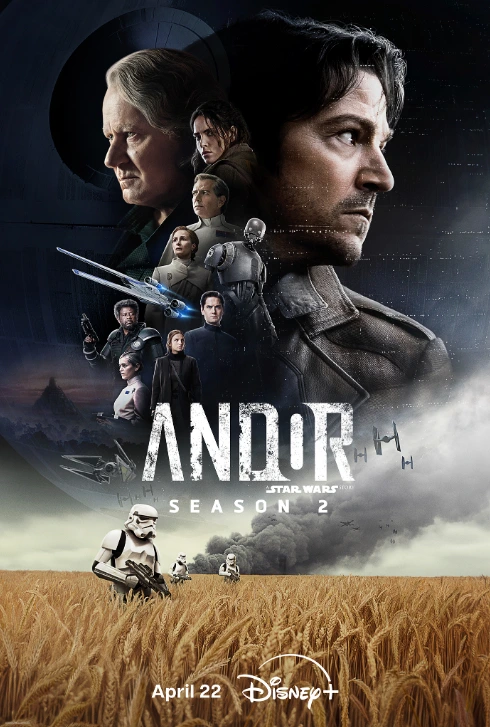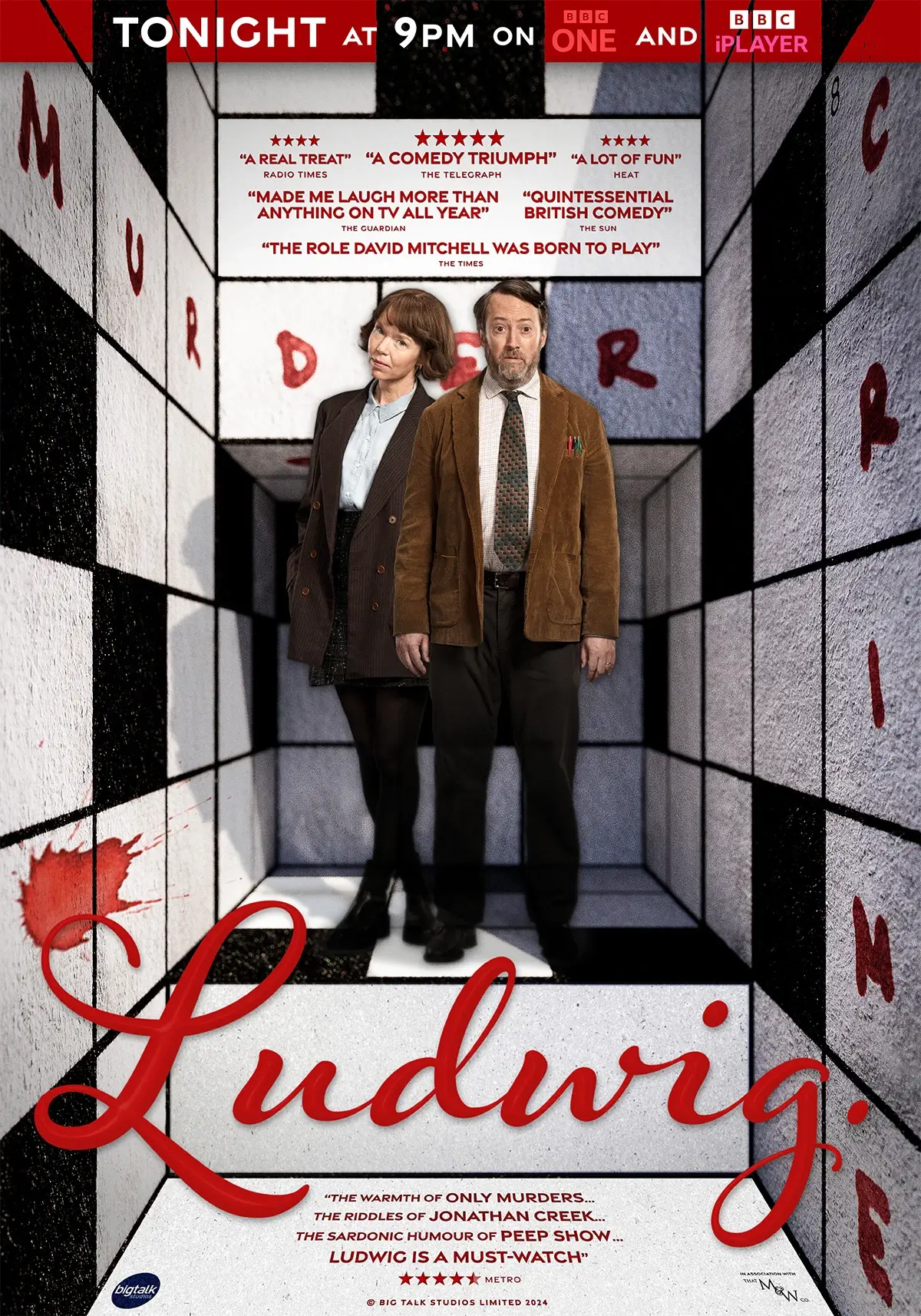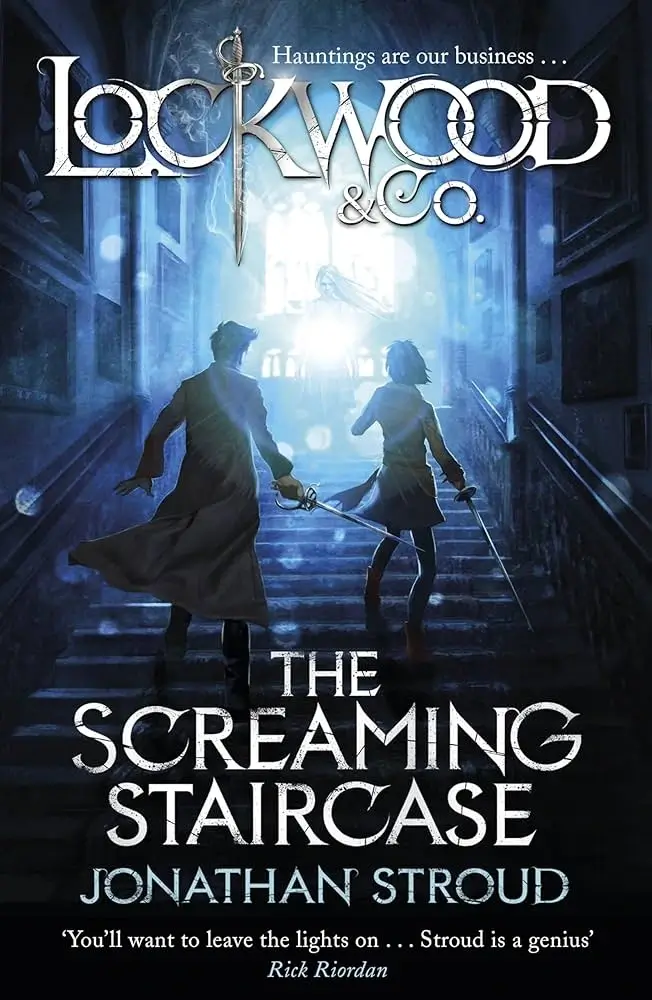A while ago, when I received a notification Netflix was creating this TV show, I read the books. I read the entire trilogy in one go and wrote a review (in Dutch back then) about them.
Now the show is finally out! When I was sick, I used that time to watch the whole thing in two days. Below are my brief thoughts about the adaptation, where I’ll mostly focus on comparing the show and the books.
The first bit has no spoilers; the bit after “Spoiler Barrier!” obviously does.
What’s the idea?
Like before, I struggle to explain the premise of this story without already giving away half the plot (of the first book/season).
This is my best attempt.
We follow Ye Wenjie as she leads a terrible life. She ends up at a secret government project that is sending signals into space and listening for responses. As this is science-fiction, you can expect her to receive a response at some point …
We follow Jen Ching (and her group of friends) as they are surrounded by colleagues committing suicide, and all the results of their experiments suddenly stopped making sense. She also stumbles upon a virtual reality game that uses technology centuries ahead of their time and starts playing it vigorously.
As the story threads continue and interweave, mysteries pile up until more and more people get the terrible sense that some external non-earth force might be playing with them.
What I liked
The showrunners (who previously made Game of Thrones) reveal once more that they are great at adaptation. They haven’t shown much skill at writing themselves and coming up with new storylines, but adapting an existing story is clearly their strength.
Their simple rewrites solve almost all my gripes with the books. In the books,
- Characters are flat. They appear out of nowhere when needed, then disappear once their use to the plot is over.
- It takes a while for actual mysteries and plot to appear in the book. It felt like events were out of order or told in such a way that the author seemed to purposely want to make them boring or confusing.
- The first book is much shorter and doesn’t contain that many events. In fact, I can barely call the first book a standalone book. You really need to read the whole trilogy for it to make sense. As such, the second and third books are much longer and sometimes feel overstuffed.
In the show, we are introduced to a cast of characters (scientist friends) from the start, and they stay our main characters throughout. This is true for season 1, but because I’ve read the books, I can already tell this will remain true for most of the show. There aren’t many character gaps to fill once you’ve met the main cast in the show.
Similarly, we immediately start with the main mysteries, and the show spends most of the time developing those. This has the side-effect of the show slowing down somewhat in the final episodes. But that is fine, because the first few episodes are so interesting that you’ll keep watching.
Everything is very easy to follow, science bits or not, and feels like a much more streamlined chain of events.
Finally, the first season pulls in a lot of elements from later books. It manages to re-balance the plot such that it keeps a good pace, but also that later seasons (if they come, hopefully) will not be forced to leave stuff out because of time constraints. Again, this does not feel forced or weird, because shifting these events actually creates a better order in my view.
The music is great. The visuals are great. The acting performances are good and the actors well cast.
The intro credits, after episode 1, are really short. Which I always like. Don’t waste time on repeating a two-minute montage of the show’s title and producers every episode—give me good story. (Maybe the showrunners learned from that extremely long one for Game of Thrones.)
And of course, everyone’s favorite officer Shi is now a main character right from the start and gets a lot of time.
What I did not like
As stated, the final episodes suddenly slow down a lot. After the first few mysteries, racing to solve or understand them, racing against a countdown, the plot somewhat … deflates after episode 5 when most of that has been dealt with.
Sure, it continues with new problems and threats. It keeps developing the ideas and it stays interesting. But it is clearly slower paced and less interesting than the start. Maybe I have this opinion because I did not care much about the more emotional character parts they introduced here, as I expected a more “hard science-fiction show” based on the books.
Because some characters were made up for the show to fit a few events scattered throughout the plot, they sometimes feel a bit wishy-washy. Not really doing much, just “being there” and hopping around to where they’re needed. (And, having read the books, I usually already knew what they would do anyway.)
There are a few lines of dialogue or concepts that are repeated ad nauseum. This has a purpose, yes, I understand, but that doesn’t make it less annoying in the episodes before getting that purpose.
Finally, the climax of this season has several components, but is mostly anchored on one big mission and one big project.
The way that mission plays out is realistic and good for the future plot, yes, but also a very disappointing non-payoff after an entire season.
The way that project is started and handled also felt mediocre to me. In the books, it was clear what was going on and why, and this felt interesting to me. The show portrays that character being so confused, and the project so vague, that it feels like a clear setup for season 2 and is not satisfying on its own.
This is the one moment where you notice that season 1 actually contains books 1 and half of book 2. Because its ending does not feel like an ending.
Besides that, a really solid adaptation.
Spoiler Barrier!
Streamlined Characters
In the books, the nanofibers are made by Wang. He falls into the story (and the mystery of scientists committing suicide), does his two or three important things, then falls out of it again. That’s it. Never to be seen again.
I agree with the choice to make him an actual character that is part of the group of friends, and who has more longevity. (In the show, he becomes Augustine, a woman.) When you make such an invention, and it’s used for a pretty terrible and unprecedented mission, you are too important to just cast aside. Though because of this major change, the showrunners clearly struggled with her sometimes, which is shown by the many scenes in which she suddenly leaves and/or joins another activity.
(First she really doesn’t want to work for Wade. Then she does. Then she suddenly doesn’t anymore, but conveniently after finishing what she was hired to do. Then we suddenly find her back at her company, where she seemingly hasn’t been for a year, making all her inventions publicly available. Then she disappears once more and suddenly turns up in a developing country. Make up your mind! Why are you hopping from place to place!)
The same is true for all the other friends. Turning them into one close group of friends, who studied together and work in the same fields, felt like a great choice. It actually gives a pretty cold and harsh series a somewhat warm and personal beginning. In fact, it inspired me to also write down a story idea about a group of scientists who studied together and then try and save the world with their inventions.
It also allows easy adaptation of all the inner monologue and science explanations to the screen. Because they constantly meet up, and know each other’s fields but are not entirely equal, they can just talk and discuss out loud.
Augustine can take a friend with her when the universe “winks” at her. Jin can experience that weird Virtual Reality game together with one of her friends, which allows verbally theorizing in a natural way.
When Saul becomes a Wallfacer in the books (Luo Ji there), you’ve literally known him for one chapter, and he has already established himself as a bit of a loser with nobody in his life. In the show, this is a character we already know, and he can talk about his confusion or the decision with others.
All of it simply makes the adaptation to the screen much easier and more natural. In fact, as I stated, I think it’s more streamlined and more clear than the books.
I like bringing Wade forward, as that’s similarly a character who suddenly appears and becomes very crucial at some later point.
The only one I did not like was Raj, Jin’s boyfriend. Maybe he’ll do cool stuff, maybe I figure out the role he was meant to play from later books. But for now he was too … stiff. He was clearly just a soundboard for Jin, about whether they were doing the right thing and such, and not much else.
Really, this review is just a “how-to guide” for adaptation: introduce characters and have them do things together, so every conflict and every mystery can be discussed out loud and lead to more drama :p
And finally, the biggest change was of course to add an entire new character in Jack. In the books, Jin plays that game alone. In the show, she and Jack join forces. When this happened, I already knew they would disagree when the revelation came and they were asked to come to that summit.
That was quite predictable—but it was still effective. When he gets killed, it raises the stakes and shows just how serious this threat is. Something the books severely lacked. (They are over Jack’s death quite quickly, but okay.) Also, he was written in just the right way: a bit of a rich asshole, but not so much that you dislike him.
All in all, this show managed to turn a host of flat characters that suddenly appear and suddenly disappear, into a cohesive set of characters that will be with us all the way. Which is much simpler and nicer, and which allows a few extra scenes and storylines. Stakes are raised, mysteries better handled, and I can already see future events falling into place neatly this way.
Why the ending wasn’t great
As stated, the ending hinges on two major events: the Staircase mission and the Wallfacer project.
The Staircase mission has been built up for several episodes. They aim to launch a probe, using a “staircase” of nuclear bombs in space to keep accelerating it, to be intercepted by the alien fleet. To plant a spy and gather more information from them.
The Wallfacer project is devised as a way to secretly create plans against the aliens. They have sent “Sophons” to spy on them literally everywhere, so anything spoken out loud or typed on a computer will be known to the aliens. But they can’t read their minds. So they designate three Wallfacers: people who get all the resources they need to enact a plan that only exists in their minds. As stated, Saul—one of the main characters—is unexpectedly chosen for this.
This is great. However, now it comes to the final episode and both these threads are mangled a bit.
The Staircase mission fails. After a few detonations, some nanofibers break loose. The probe deviates from the path, misses the other nuclear bombs, and will probably fly through empty space forever with no purpose.
This is not a great way to end a season. Or, at least, it does not feel like a great way. It’s a major defeat. It’s a lot of build-up for a big anti-climax with no clear way forward. Okay, the mission failed. Now we have nothing to look forward to. Nothing setup that comes next. Nothing learned or gained from it. Where’s the payoff? Where’s the satisfying resolution to something?
Similarly, we spend the last episode following Saul as he refuses the Wallfacer position and is only met with confusing responses and smiling people. In the books, he pretty quickly realizes that they must respond that way. They must do everything he says, because anything can be part of his “secret plan” that only exists in his mind, so he cannot truly refuse the Wallfacer role. In the show, this is just a series of slow and vague conversations that lead nowhere.
This is not a great way to end a season :p It just means we spend a lot of time with a character in limbo that does nothing and is confused.
(Also, I’m not sure where they’ll take Augustine, but at least she has a final scene that shows her helping people in poor countries with her nanofiber inventions. She has a path forward.)
I would have liked to see something like the following.
- Saul quickly understands his position, then makes his first move to capitalize on it (or “abuse” it, rather). The audience isn’t sure if he has a secret plan or is just messing around, but at least he acts and he has a path forward.
- The people from the Staircase Project learn a thing or two about the failed mission and talk about their possible next actions, hinting at some cool or interesting stuff but making no decision yet.
- We get some minor scene raising the stakes even more and showing just how threatening these aliens are. Without that, the show feels to stagnant. (The show tries to do this, by making Sophon appear before Wade and scaring the hell out of him, but I think we needed a little bit more.)
The major “flaw” of this story is that the aliens will not arrive for another 400 years. It’s said repeatedly, annoyingly often actually. This makes the argument of “why act now” and “let’s just wait and see” often more compelling than taking action, which you never want in a story.
Finally, the show repeats the fact that “we are bugs” annoyingly often too. This is all a setup for the final scene, in which Shi shows that bugs are not that easily exterminated and can even wipe away entire fields. But until that moment, I was just frustrated about this repetition and wanted to punch them in the face :p
Anyway, I am interested to see how they adapt season 2. I liked season 1, and I probably would have liked it too if I hadn’t read the books, and I have faith that they will streamline and strengthen what’s in the books. I am also very interested in how they’ll visualize all the crazy higher-dimensional science stuff.
Those were my brief thoughts. Yes, 2500 words is brief for me.



